No products in the cart.

Did you know that the West African country of Nigeria was never a nation? Yes, that’s right. The country was bought and sold like a commodity by the British at the turn of the 20th century. Before you wonder or ponder on how a vast country like Nigeria could be bought and sold, let’s go back to history.
The Acquisition of Nigeria
The geographical area of what is now present-day Nigeria was once known as the Slave Coast by the European slave traders. However, by the 1870s slavery had died down.
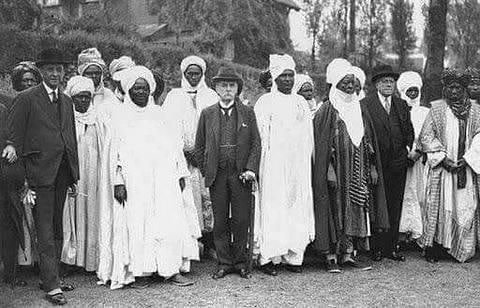
Britain, which was the first industrialised nation in the world, had lost its appetite for slaves and now preferred palm oil. It needed the cash crop as a lubricant for its machines to maintain its status as an industrial powerhouse.
Contents
At first, most of the trade in oil palm was awkward as locals were selling to those who gave them the best deals. Some of these local chiefs, like Jaja of Opobo, became immensely wealthy due to the oil palm trade. As a result, Jaja was influential as well.
Activities of the Royal Niger Company
However, among the Europeans, there was competition among those who would get preferential access to the lucrative oil palm trade and in 1879, a British colonial administrator, Sir George Taubman Goldie (1846-1925) formed the United African Company (UAC) and effectively took control of the Lower Niger River.
By 1885, in the aftermath of the Berlin Conference, his company had acquired 30 trading posts along the Lower Niger. This monopoly gave the British a strong hand against the French and Germans and got the area the UAC operated in.
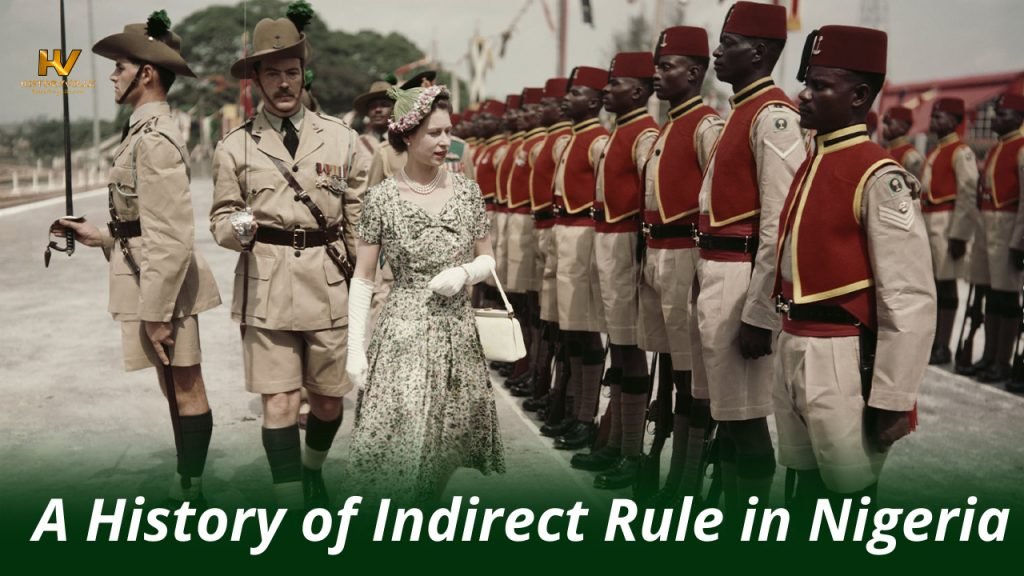
After the British had got the terms they wanted from other Europeans, they began to deal with the African chiefs. Within two years, Goldie had signed treaties with tribal chiefs along the Benue and Niger Rivers while also penetrating inland. But this move inland was against the agreements signed with the chiefs.
By 1886, the company was granted a royal charter which authorised it to administer the Niger Delta, present-day Southern Nigeria, and all lands around the banks of the Niger and Benue Rivers.
The Murder of King Jaja of Opobo
To the indigenous chiefs, the Royal Niger Company envoys had promised free trade in the region. However, behind the scenes, they entered private contracts on their own terms. Because these deceitful private contracts were often written in English and signed by the ignorant local chiefs, the British enforced them.

When Jaja of Opobo tried to export oil palm on his own, he was forced into exile for breaking his promise and obstructing commerce. However, Jaja was “pardoned” in 1891 and allowed to return home, but he died on his way back to Opobo, poisoned with a cup of tea.
King Koko Mingi VIII of Nembe
When the news of what happened to Jaja got to some other native rulers, they began to look more closely at the deals they were getting from the Royal Nigeria Company.
One such kingdom was Nembe, whose king, Koko Mingi the Eight, resented the monopoly enjoyed by the Royal Nigeria Company.
Nevertheless, by 1894 the Royal Nigeria Company increasingly dictated whom the natives could trade with and denied them direct access to their former markets.
As a result, Koko who was a Christian schoolteacher, renounced the religion and formed an alliance with Okpoma against the Royal Nigeria Company to take back the trade.
On January 29, 1895, King Koko led an attack on the Royal Niger Company’s headquarters, which was in Akassa in present-day Bayelsa State of Southern Nigeria.
The pre-dawn raid had more than a thousand men involved and Koko’s attack succeeded in capturing the base. Losing 40 of his men, King Koko captured 60 white men as hostages, as well as a lot of goods, ammunition and a Maxim gun. He then attempted to negotiate a release of the hostages in exchange for being allowed to choose his trading partners.
The British refused to negotiate with Koko, and he had 40 of the hostages killed. A British report claimed that Koko and his people ate them.
On February 20, 1895, the British Royal Navy led by Rear Admiral Sir Frederick Bedford in a reprisal, attacked Nembe, killed most of its people and burned the town to the ground.
Koko escaped the onslaught and became a wanted man by the British. However, in 1898, he committed suicide while he was in exile.
Aftermath
The immediate effect of the Brass Oil War was that public opinion in Britain turned against the Royal Niger Company and its charter was revoked in 1899.
Following the revoking of its charter, the Royal Niger Company proceeded to sell its holdings to the British government for £865,000, which is equivalent in purchasing power to about One Hundred and Ten Million Pounds (£110,230,688.21) today. That is equivalent to ₦53 billion at today’s exchange rate in Nigeria.
So, that was the money Britain paid to buy the territory which is today known as the Federal Republic of Nigeria.
As for the Royal Niger Company, it went on to change its name to “The Niger Company Limited”, and in 1929, it evolved into Unilever, which still operates in Nigeria today.
Well, that’s a story for another day.
If you liked this article, you can subscribe to our YouTube Channel for interesting historical videos and follow us on all our social media handles. Do not hesitate to share this article with your friends as well.
You can also get A Carnage Before Dawn, a historical account of Nigeria’s first coup d’état. Paperback here. And on Amazon Kindle and Amazon Paperback.
2 Comments
View CommentsLeave a Reply
You must be logged in to post a comment.


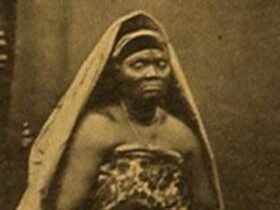
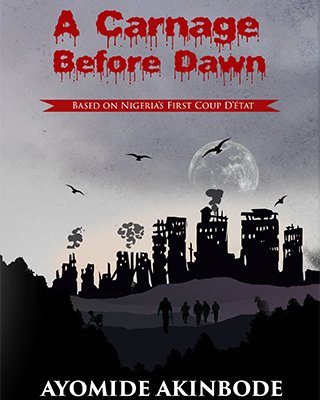
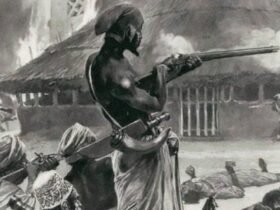


Comment:THAT WAS AWESOME.I LOVED IT THANKS
I love history but my knowledge as far as Africa is concerned needs polishing so this is a perfect opportunity.